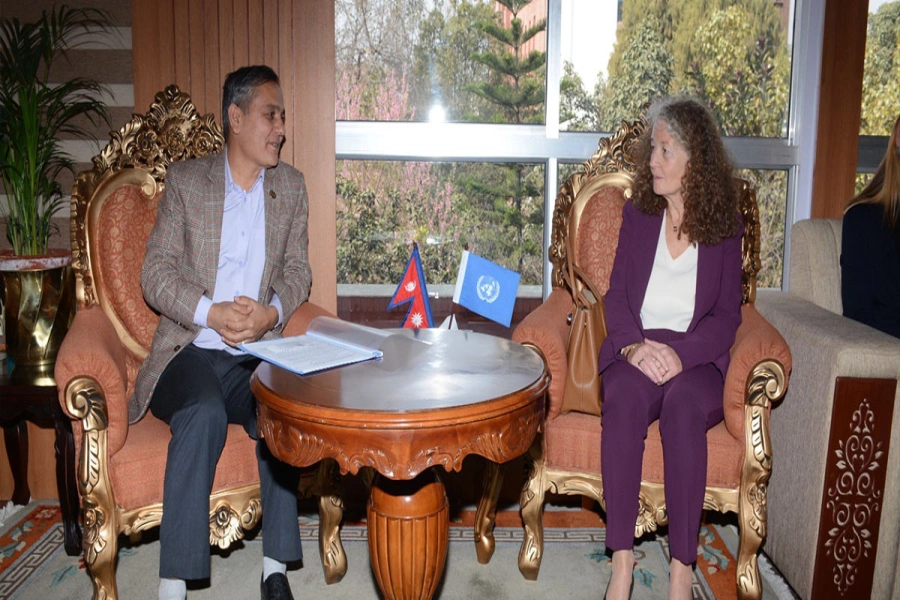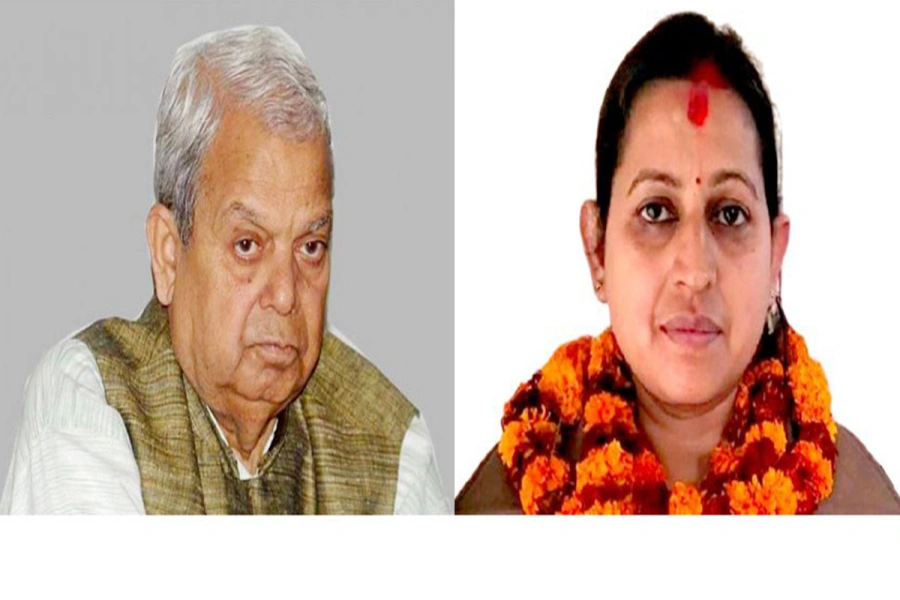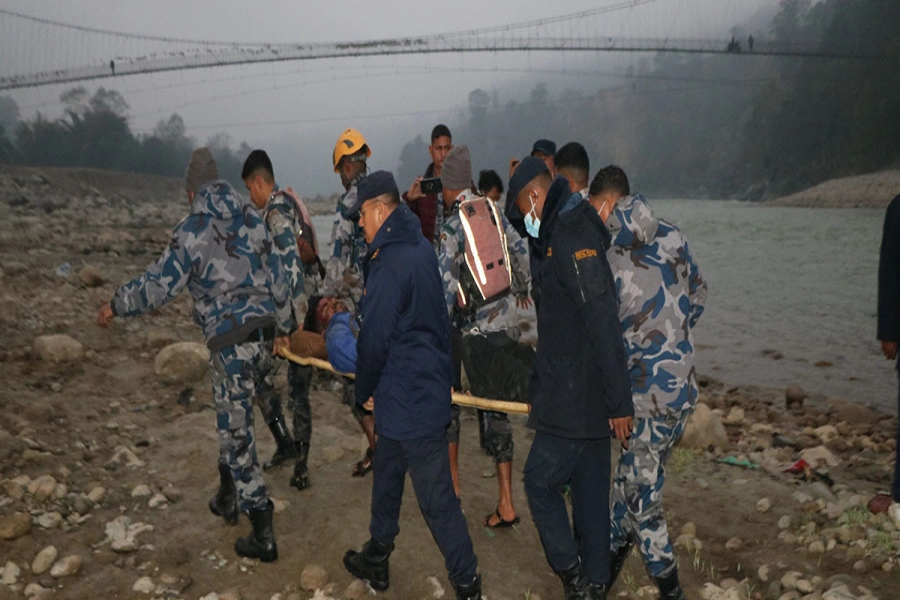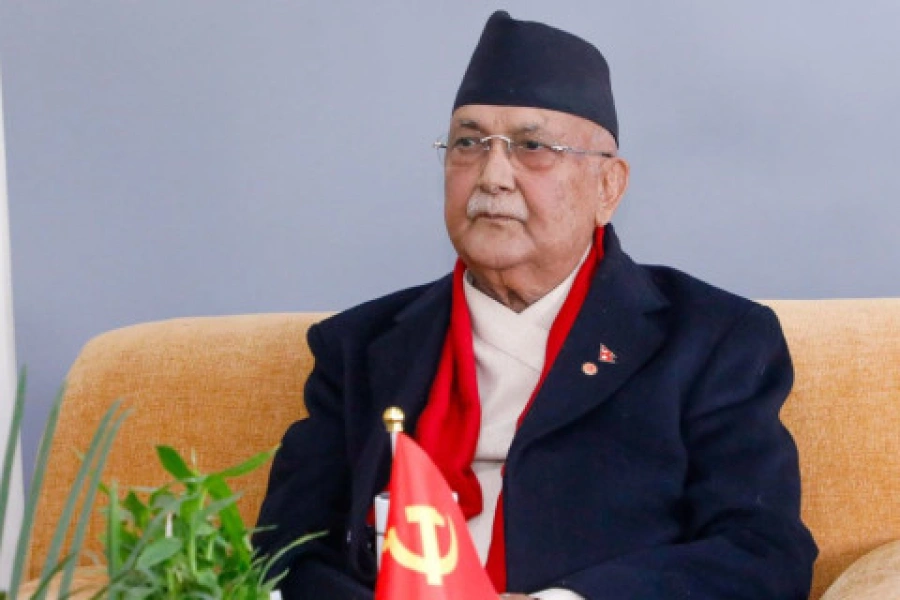The vulnerability of Nepali migrant workers as well as the stories of their exploitation and struggles have turned many novels into bestsellers, helped songs become popular hits and even inspired photo books and exhibitions. It’s a narrative that we Nepalis find ‘oh- so- captivating’. At least, that’s what human rights lawyer Barun Ghimire thinks.
Ghimire from the Law and Policy Forum for Social Justice (LAPSOJ) office in Anamnagar applauds the enthusiasm with which the migrant’s stories have been told and covered over the years. But shifting gears from a reader, a spectator to an advocate trying to tackle our justice system on behalf of our Nepali migrant workers, the context becomes a tad little exasperating.
By now we have all realized that issues related with the migrant workers are overwhelmingly vast. Starting from basic human and family rights itself to health, deception, compensation, rescue and now even concerns of trafficking, rehabilitation and so on, it’s all a tangled web of cases and problems.
“But when it comes to identifying the exact root of the various issues and untangling them to find effective solutions, we haven’t got down to it at all,” says Ghimire.
The last Prachanda led government may have introduced new policies like increment of compensation and insurance returns in case of death of migrant workers or the introduction of mandatory insurance coverage for Nepali workers going to India, however, Ghimire labels them as easy tactics. According to him, it doesn’t change anything.
Jai Narayan* from Darchula was duped by his manpower agency. It’s a storyline we are all familiar with. However, despite losing Rs 100,000, he is choosing not to file a case. The reason goes back to money.
“What’s the point if he has to spend Rs 25,000 and go through all the trouble, just to win back Rs 50,000,” says his cousin living in Kathmandu.
Though initially Narayan wanted to challenge the agency and had approached lawyers, after hearing about the experiences of all the court hassles of fellow returned migrant workers, he stopped the proceedings. He is currently living in his village and trying to find other alternatives to make up for the lost money.
Analysis of judicial precedents on medical negligence within Ne...

Krishna Neupane, from People’s Forum for Human Right that provides free legal aid to migrant workers, says he sees it all the time. Majority of the time, the migrant workers don’t have the necessary papers to prove their case and even when they do, out of the 12,000 FIRs that they have filed in the last five years, Neupane says, 30 percent of the clients chose not to pursue it further.
“Clearly providing justice isn’t only about making laws, we have to make them accessible as well. In the absence of decentralization of our justice procedures and legal aids, many suffer,” shares Neupane.
And this is just the tip of the iceberg. More often than not, the best case scenario for those workers who do manage to stick through with their cases is a settlement. From the worker’s point of view, this isn’t a bad deal. But in the bigger scope of things, since the agency can usually just pay the amount and avoid prosecution, the cycle tends to continue.
“Compensation for individual cases is an acceptable result. But the result has limited effect,” explains Ghimire. It’s the reason people at LAPSOJ are choosing to mainly work with Class Action Law suits and Public Interest Litigation.
There are issues like transportation of dead bodies, provision of legal aid, sentence transfer policy, all of which are still largely unaddressed.
Pravasi Nepali Coordination Committee (PNCC), a non-profit organization of committed returnee migrant workers dedicated to protecting and promoting migrant workers’ rights, try and fill the void.
Som Lamichhane, one of the founders of the organization, gets seven to ten cases on average every single day. Something as obligatory as getting the bodies of their beloved back is a complicated process for many families. Ram Naryan Yadav from Dhanusha for instance, talks about the confusion of all the required paper works. “When we were informed of my brother’s death and inquired about the protocols to get his body back, it was incomprehensible. I panicked,” he says.
Rather than dealing with the legal process, his demised brother’s company policy, the cost coverage and so on, Yadav was advised by his late brother’s migrant friend to contact PNCC. It took Yadav a week to get his brother’s body back.
In Lamichhane’s experience, apparently the longest a family has had to wait was five years. They couldn’t get their son’s body back from Saudi Arabia and they coordinated throughout the years for them.
Similarly, PNCC are also looking through cases such as contract violations and jail sentences. While rescue missions for migrant workers who have been left penniless and helpless after being deceived by agencies or mistreated by employers are a given, they are requested to tend to serious cases on a regular basis as well.
One of their recent documents is about a Mr Adhikari who had to spend six months and 25 days in the jail without any reason. Elsewhere, in Saudi Arabia, a Mr Shah is in line for the death penalty whilst claiming to be innocent. PNCC collaborates with the Nepali Embassy and tries to secure legal aids for these people.
So for most of the international organizations like Qatar human right community or the Malaysian Bar Council, PNCC has gone on to become a country representative.
“It’s apparent that our government still hasn’t been able to explore diplomatic channels with the concerned countries,” says Lamichhane.
Ghimire agrees as well, explaining that destination countries have their own laws and there are many mechanisms for Nepali migrant workers to secure their rights. Unlike popular belief, they don’t have to run back to Nepal to seek justice. Countries like Philippines and Sri Lanka for instance, file cases on behalf of their migrant workers in the destination country itself. But we haven’t been able to take such initiatives. The government hasn’t looked into such avenues. With the help of organizations like PNCC, we are just about able to maintain the basic right of migrant workers to have access to legal aid.
So going back to the LAPSOJ’s strategy of making policies more favorable for migrant workers with Class Action Law and Public interest litigation suits, they are trying to identify generic issues like these of the returnees and take them to court. They have informed stakeholders of their motives and asked them to look through their research pool and from there, they pick the prospective cases. If the decision of the case is made in their favor, it can coerce a review of the policy and in process, affect all the other migrants as well.
“We thought this would be more effective than handling mere individual concerns. The most we can do is present their cases to the best of our abilities, the rest depends on the sensitivity of the judiciary panel and then the priority of our government,” says Ghimire.
In efforts to make the government more accountable on this issue, LAPSOJ is even looking to secure voting rights for migrants. They consider it to be one of the thematic issues that should benefit all the migrant workers abroad. The voting issue has even had an initial hearing, and now they are waiting for the main hearing.
Despite these slight developments, Ghimire shares with incredulity Nepal’s Human Rights state report which didn’t dedicate a single paragraph for migrant workers. This was just two years back. Indeed, the weak will of our government on the issue isn’t exactly new for people working in the field. Together, they have made some progress on migrants’ awareness and rehabilitation front but with their court cases, they hope to eventually bring forth the all important structural change in the policies.
Even before the current news of Nepal being elected as the deputy member on the International Labor Organisation’s (ILO) governing board in Geneva hit the papers, Ghimire was well aware and alert of the developing.
“This is a good opportunity,” he says. Nepal will now represent South Asia in the body and contribute to policy making for various labor and migration related issues for the next three years.
Ghimire along with Neupane, Lamichhane and others working for the issues of migrant workers, hope that this new responsibility will compel the government to be conscious about our own country’s judiciary loopholes on migrant matters and urge them to implement the necessary changes.
priyankagurungg@gmail.com






































